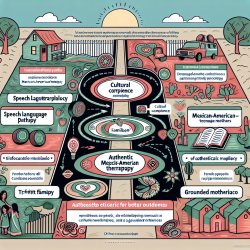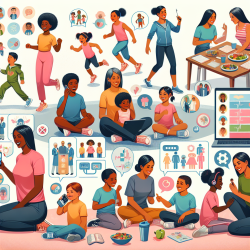Empowering Change: Reducing Sugar-Sweetened Beverage Consumption for Healthier Futures
As a Special Education Director, I am constantly seeking ways to enhance the well-being of our students and their families. The recent study, "Kids SIPsmartER reduces sugar-sweetened beverages among Appalachian middle-school students and their caregivers: a cluster randomized controlled trial," provides valuable insights that can be leveraged to promote healthier lifestyles in our communities.
The Challenge of Sugar-Sweetened Beverages
Sugar-sweetened beverages (SSBs) are a significant contributor to various health issues, including obesity, diabetes, and dental problems. The consumption of these beverages is particularly high among adolescents and adults in rural areas, such as Appalachia. Addressing this issue is crucial for improving public health outcomes.
Key Findings from the Kids SIPsmartER Study
The Kids SIPsmartER program, a school-based intervention, demonstrated significant reductions in SSB consumption among middle school students and their caregivers in rural Appalachian regions. The program's success was attributed to its multi-level approach, which included:
- A 6-month, 12-lesson curriculum focused on health literacy and behavior change.
- Engagement of caregivers through a two-way text messaging strategy.
- Integration of educational and behavioral techniques, such as goal setting and self-monitoring.
The study found that students reduced their SSB intake by an average of 7.2 ounces per day, while caregivers reduced theirs by 6.3 ounces. These reductions were even more pronounced among high consumers at baseline.
Implementing the Findings in Practice
For practitioners looking to implement similar interventions, consider the following strategies:
- Focus on Education: Develop comprehensive educational programs that emphasize the health risks associated with SSBs and provide practical alternatives.
- Engage Caregivers: Utilize technology, such as text messaging, to involve caregivers in the intervention process. This engagement can enhance the program's effectiveness by reinforcing healthy behaviors at home.
- Customize Interventions: Tailor programs to meet the specific needs of your community. Consider cultural, socioeconomic, and geographical factors that may influence SSB consumption.
Encouraging Further Research
While the Kids SIPsmartER study provides a solid foundation, there is still much to learn about effective SSB reduction strategies. Practitioners are encouraged to conduct further research to explore:
- The long-term sustainability of SSB reduction interventions.
- The impact of such interventions on other health outcomes, such as body mass index (BMI) and quality of life.
- Innovative methods to increase caregiver and student engagement in health programs.
By continuing to investigate and implement evidence-based strategies, we can make significant strides in improving the health and well-being of our students and their families.
To read the original research paper, please follow this link: Kids SIPsmartER reduces sugar-sweetened beverages among Appalachian middle-school students and their caregivers: a cluster randomized controlled trial.










